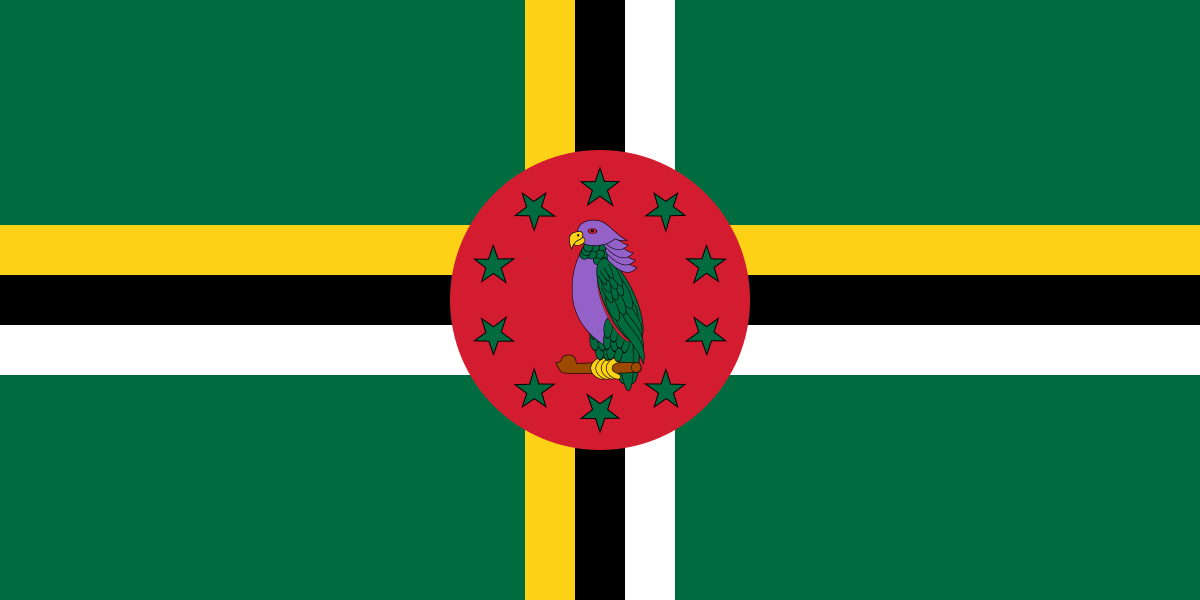Location
Dominica was the last of the Caribbean islands to be colonized by Europeans due chiefly to the fierce resistance of the native Caribs. France ceded possession to Great Britain in 1763, which colonized the island in 1805. In 1980, two years after independence, Dominica's fortunes improved when a corrupt and tyrannical administration was replaced by that of Mary Eugenia CHARLES, the first female prime minister in the Caribbean, who remained in office for 15 years. On 18 September 2017, Hurricane Maria passed over the island causing extensive damage to structures, roads, communications, and the power supply, and largely destroying critical agricultural areas.
Government type: parliamentary republic.
The politics of Dominica takes place in a framework of a parliamentary representative democratic republic, whereby the Prime Minister of Dominica is the head of government, and of a multi-party system. Executive power is exercised by the government. Legislative power is vested in both the government and the House of Assembly. The Judiciary is independent of the executive and the legislature.
Information from the CIA Factbook and Wikipedia article Politics of Dominica
Members:
Resources
Displaying 36 - 40 of 52Development and Planning Corporation Act (Cap. 84:01).
This Act provides for the establishment of the Development and Planning Corporation, defines powers and functions of the Corporation and makes provisions in relation with tax incentives for development.The Corporation shall be responsible for physical planning in Dominica. It shall have the power to carry out or secure the laying out and development of designated areas.The Corporation shall have also various powers in respect of dealings in land such as acquisition, sale or lease.
Conveyancing and Law of Property Act (Cap. 54:01).
This Act provides rules relative to the conveyancing of rights in land such as property, easements, lease and mortgages. It regulates, among other things, the contents of a deed and covenants and power of attorney.
Beach Control Act (Cap. 42:04).
The Act provides for the vesting of the foreshore and the floor of the sea in the State and regulates the use and control of those areas and related matters. The “floor of the sea” means the soil and subsoil of the sea off the coast of Dominica between the low-water mark and so far out to sea as is deemed by law to be within the territorial sea. Use of the foreshore and the floor of the sea requires a licence. Exempted from such obligation are agriculture, rights of fishermen in or over any beach or adjoining land before the Act came into operation and other rights specified in section 10.
Carib Reserve Act (Cap. 25:90).
This Act concerns the administration of an area of Dominica set apart under this Act as a reserve and known as the “Carib Reserve”. The Carib Reserve Council shall be constituted as a body corporate and shall be a local government body with the same powers as a Village Council. The Council may make By-laws for the administration of the area including such matters as drainage and sewerage, pollution control, the keeping of animals and the sale of food. The Authority may also establish public pounds and allot land for purposes of agricultural development.
Administration of Insolvent Estates Act (Cap. 9:07).
This Act makes provision for certain aspects regarding debts of insolvent estates of deceased persons. It lays down rules for the administration of estates (by court), defines rights of secured and unsecured creditors in respect of an estate and provides that this Act shall not prejudice any lien, charge or other security that a creditor may hold for the securement of the debt.


